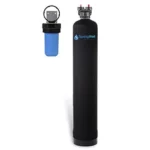When a teen is experiencing serious behavioural or motivational issues, parents often explore intensive intervention programs like boot camps or wilderness therapy. Two popular options near Nampa, Idaho are boot camp and wilderness therapy. But which intense yet therapeutic model is the right fit? This article compares teen boot camps versus wilderness therapy to help families make the best choice.

Content
What is a Teen Boot Camp?
Teen boot camps, also known as life skills or discipline boot camps, utilize a highly structured military-style model. Campers follow strict schedules, rules, and participate in physical challenges. The goal is to build life skills, work ethic, and self-discipline through regimented routine, accountability, and experiential learning activities.
Boot camps aim to “reset” a teen’s attitude and approach through an intensive immersive experience over 5-14 days. Counseling, group projects, and mentorship provide social-emotional support alongside the discipline component. While effective for motivating some struggling adolescents, boot camps may not be a good fit for teens with serious emotional or behavioral issues.
What is Wilderness Therapy?
Wilderness therapy programs take a more therapeutic and nature-based approach compared to boot camps. Teens spend weeks or months living outdoors in small groups with trained counselors. The remote natural setting provides physical and mental challenges outside the typical distractions teens face.
Through outdoor activities, group projects, journaling, and one-on-one counseling, wilderness therapy aims to help teens develop self-awareness, coping skills, and positive relationships. Rather than discipline, the goal is addressing underlying issues through experiential learning in a supportive environment. Programs tend to last 4-12 weeks or longer.
Which is a Better Fit?
In general, wilderness therapy may be more appropriate than a boot camp for teens:
- With serious emotional/behavioral health conditions like depression, anxiety, or trauma-related issues. The therapeutic model can better address underlying causes.
- Who are resistant to authority or regimented structure. Wilderness therapy’s emphasis on personal growth versus discipline may produce better long-term results.
- Whose issues stem more from family/social dynamics versus lack of self-discipline. Spending extended time apart from home stressors allows processing.
- When the goal is long-term personal development rather than short-term behavior modification. Multi-week programs build skills for life after treatment.
Meanwhile, boot camps may work better than wilderness therapy for teens primarily needing:
- A “reset” on attitude, work ethic and responsibility through intensive structure.
- Short-term motivation and redirection of problematic behaviors like substance use or rule-breaking.
- Support after a major life event like divorce, death in the family, or other short-term crisis.
Overall, an evaluation with a licensed therapist can help families determine if a boot camp or wilderness therapy is the best initial intervention approach for their teen’s unique situation and long-term needs. Ongoing family support is also important for lasting change. If you aren’t interested in these two programs, you can consider a teen boot camp alternative in Nampa that takes a more therapeutic approach compared to traditional boot camps.
Conclusion
When used appropriately, both wilderness therapy programs and teen boot camps near Nampa show promise as intervention options for struggling adolescents. While boot camps focus on discipline and life skills, wilderness therapy emphasizes therapeutic personal growth. An evaluation can help families choose the model best equipped to address a teen’s specific issues and long-term goals in a supportive environment. With care, either may help redirect teens onto a healthier path.

Kylie Davidson is a health blogger and the founder of her own blog about fitness. She has been blogging for three years now and loves to share what she learns with others. Kylie enjoys reading, cooking, and staying active outdoors.











